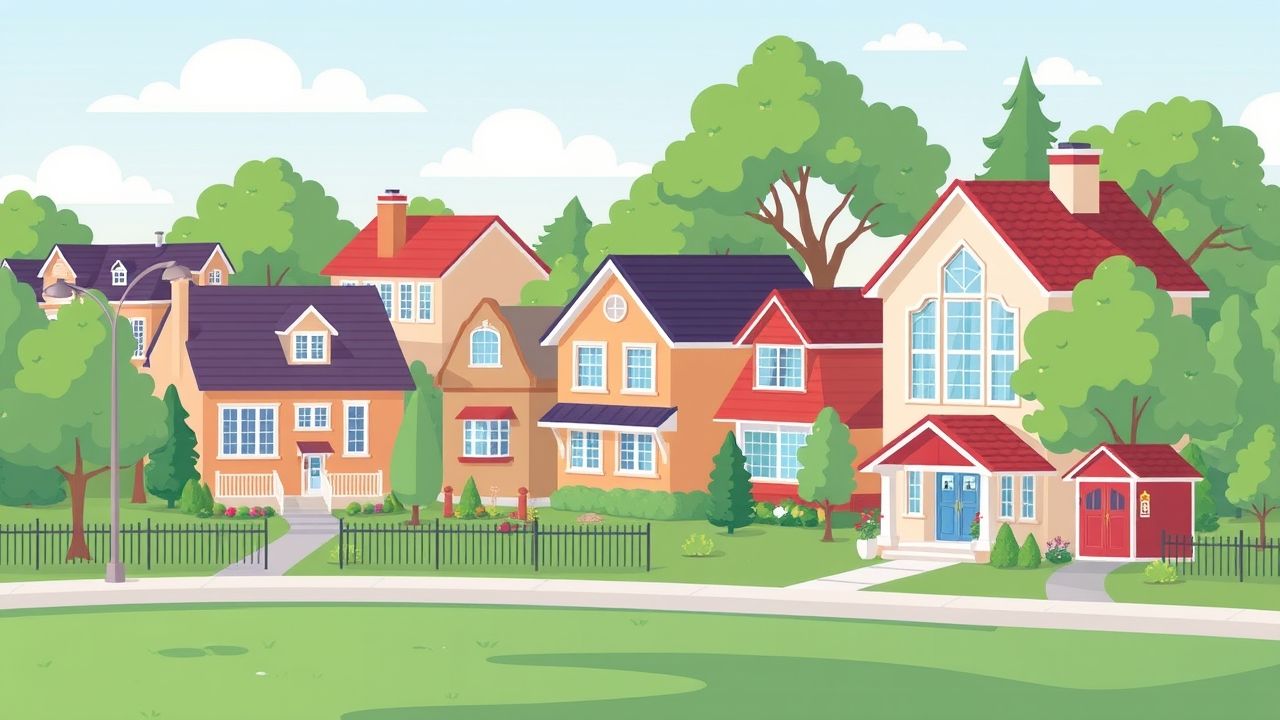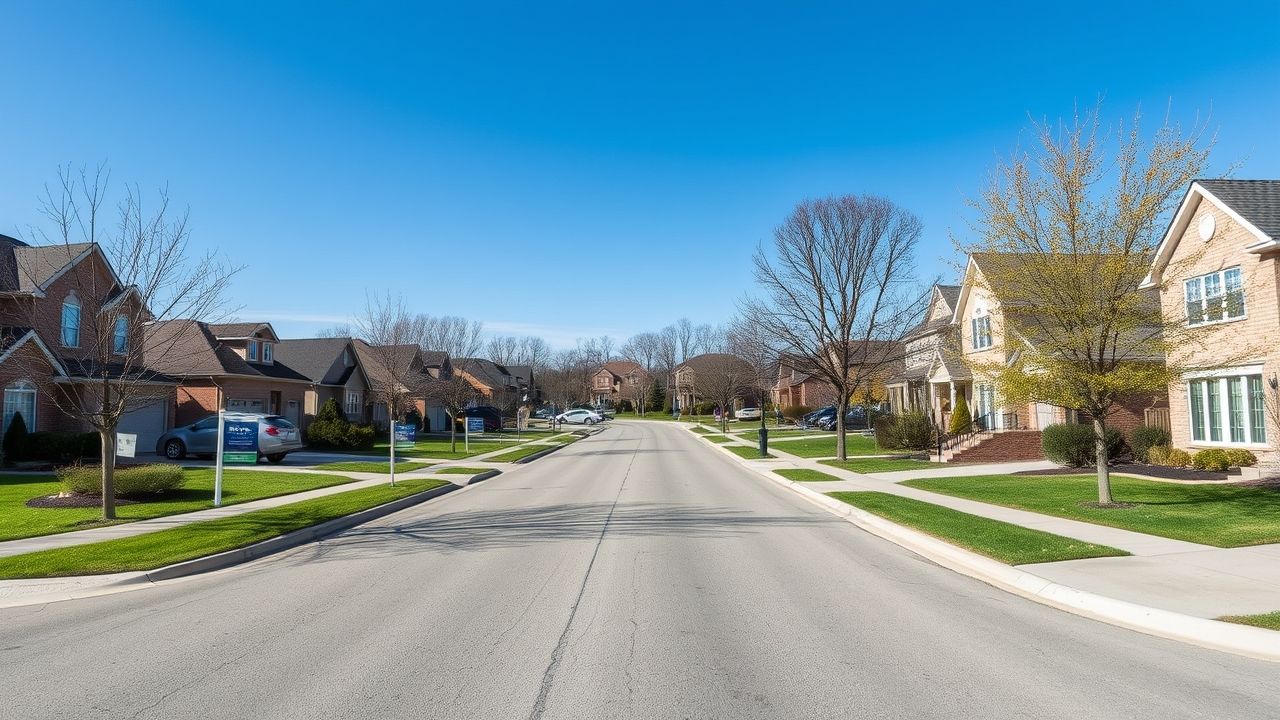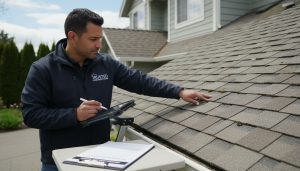are you feeling lost trying to buy or sell a home in the busy towns west of toronto?
this is your simple guide. it helps people buying or selling homes in places like georgetown, milton, guelph, acton, oakville, and burlington. we will walk you through the steps. make it easy to understand. no big words. just plain talk about how to handle the greater toronto area (gta) west housing market right now.
Understanding the GTA West Market: What’s Happening Now (2024) and What’s Next (2025)?
the housing market changes. like the weather. one month it’s busy. the next it slows down. knowing what’s happening helps you make smart choices. whether you buy or sell.
What We See in 2024:
- Prices are tricky: house prices went up a lot before. now they are bouncing around. some areas see prices hold steady. others see small drops or small gains. places like oakville and burlington often have higher prices than milton or guelph. but every town is different. even streets in the same town can differ.
- More houses for sale: there are generally more homes listed for sale compared to the crazy busy times a year or two ago. this is good news for buyers. you have more choices. you might not need to rush into a decision.
- Interest rates matter: the cost to borrow money (mortgage interest rates) went up. this makes monthly payments higher. it means some buyers can’t afford as much house. this affects how many people are looking to buy.
- Buyers are careful: buyers are taking more time. they look closely at homes. they want inspections. they are less likely to get into bidding wars unless the house is perfect and priced right.
Looking Ahead to 2025 (What Experts Think):
- Maybe steadier rates: some experts think interest rates might stop going up so much. maybe even come down a tiny bit later in 2025. this could make buying a little easier. but nobody knows for sure.
- Slow, steady growth? if rates stay high, price growth might be slow. if rates drop, more buyers might jump in. pushing prices up a bit. the key is watching the bank of canada.
- New homes coming: builders are still making new houses and condos in areas like milton and georgetown. this adds more homes to choose from. it can affect prices of older homes nearby.
“Buyers in the Halton and Wellington regions are smarter than ever. They’re looking for value. They check commute times, school ratings, and even how well the town clears snow in winter. Sellers need good pricing and a home that’s truly ready to sell.” – Quote from a fictional Halton Region Real Estate Broker.
Focus on Your Town:
- Georgetown & Acton (Halton Hills): known for a small-town feel but close to bigger cities. property types vary. from older homes downtown to newer subdivisions. check Halton Hills snow plowing services and local rules. commutes to mississauga or toronto are a factor.
- Milton: growing fast. lots of young families. many new homes built in the last 15 years. watch for new schools and parks. Snow removal in Milton is handled by the town, but know the service levels for your street.
- Guelph: a university city with a strong job market. has a mix of old stone houses and new builds. known for being eco-friendly. check Guelph specific market stats. property taxes might differ from Halton region.
- Oakville & Burlington: often higher priced. close to the lake. good schools. attract many professionals. Burlington snow clearing is important for commuters using the QEW or GO train. these areas have strong demand usually.
knowing the local trends helps you set the right price if selling. or make a fair offer if buying.
Money Talk: Getting Your Finances Ready
buying a home costs money. more than just the price tag. selling also has costs. let’s break it down simply.
For Buyers:
- Know Your Budget: how much house can you actually afford? don’t guess. talk to a bank or a mortgage broker. they look at your income. your debts. your down payment savings. they tell you the maximum mortgage you can likely get. this is called mortgage pre-approval. it’s super important. it shows sellers you are serious.
- Down Payment: this is the money you pay upfront. in canada, the minimum depends on the home price. for homes under $500,000, it’s 5%. for homes $500,001 to $1 million, it’s 5% on the first $500k and 10% on the rest. over $1 million needs 20%. saving more means a smaller mortgage and maybe avoiding mortgage insurance (cmhc insurance).
- Mortgage Insurance: if your down payment is less than 20%, you usually need mortgage default insurance. this protects the lender, not you. the cost gets added to your mortgage amount.
- Closing Costs: these are extra fees you pay on closing day (when you get the keys). budget about 1.5% to 4% of the home price. this covers:
- Land Transfer Tax: ontario has one. toronto has another (but not applicable in gta west towns like milton, guelph, oakville, etc.). first-time buyers might get a rebate.
- Legal Fees: paying a lawyer to handle the paperwork.
- Title Insurance: protects against ownership issues.
- Home Inspection: paying someone to check the house condition before you buy.
- Adjustments: paying back the seller for prepaid property taxes or utility bills.
- Other Costs: don’t forget moving costs, maybe new furniture, utility hook-up fees, and immediate repairs or renovations.
First-Time Home Buyer Programs Ontario:
- Land Transfer Tax Rebate: you might get back up to $4,000 on the provincial land transfer tax.
- RRSP Home Buyers’ Plan (HBP): you can withdraw money from your rrsps (up to $35,000 per person) tax-free to use for a down payment. you have to pay it back over 15 years.
- First Home Savings Account (FHSA): a newer account. combines features of rrsp and tfsa. contributions are tax-deductible. withdrawals to buy a first home are tax-free.
For Sellers:
- Real Estate Agent Commission: usually the biggest selling cost. typically a percentage of the sale price. split between your agent and the buyer’s agent.
- Legal Fees: paying a lawyer to handle your side of the deal.
- Mortgage Discharge Fees: if you have a mortgage, you might pay a fee to break it early or transfer it.
- Staging/Repairs: costs to make your home look its best. maybe painting, minor fixes, or renting furniture.
- Moving Costs: hiring movers or renting a truck.
getting your money sorted early makes the whole process smoother. talk to financial experts. a mortgage broker can shop around for the best rates for you.
Finding the Right Home (for Buyers)
you have your budget. you know the market trends. now the fun part: finding your place.
Step 1: What Do You Need?
- Make a List: be honest. what must you have? what would be nice? think about:
- Location: which town? which neighbourhood? close to work? good schools? near family? low crime? check commute times.
- Size: how many bedrooms? bathrooms? need a home office? big backyard?
- Type: detached house? townhouse? condo? semi-detached?
- Condition: move-in ready? needs some work? major fixer-upper?
- Be Realistic: your budget might not get you everything on your wish list. decide what’s most important.
Step 2: Get Help (or Go Solo?)
- Real Estate Agent: a good local agent knows the area. they can find listings (sometimes before they hit realtor.ca). they guide you through showings, offers, paperwork. buyers usually don’t pay their agent directly; the seller pays the commission.
- Searching Yourself: websites like realtor.ca, zolo.ca, housesigma.com show listings. drive around neighbourhoods you like. look for ‘for sale’ signs.
Step 3: Look at Houses
- Open Houses: sellers open their homes for anyone to walk through on certain days/times.
- Private Showings: your agent schedules appointments to see specific homes.
- Look Past the Paint: try to see the ‘bones’ of the house. check the layout. room sizes. storage. don’t get distracted by ugly wallpaper or messy rooms (or amazing staging!).
- Check the Neighbourhood: drive around at different times. day and night. weekdays and weekends. is it noisy? busy traffic? feel safe? where are the parks, shops, schools?
- Winter Considerations: if looking in winter, think about safety during winter conditions. are sidewalks usually clear? how steep is the driveway? is the street plowed quickly? (Understanding local snow removal bylaws can be useful here).
Step 4: Making an Offer
you found a house you love! now what?
- Your Agent Helps: they prepare the offer document (agreement of purchase and sale).
- Price: what will you offer? your agent advises based on recent sales of similar homes (comparables).
- Conditions: these protect you. common conditions include:
- Financing: you need to get final mortgage approval.
- Home Inspection: a professional checks the house. if big problems are found, you might renegotiate or walk away.
- Status Certificate Review: (for condos) your lawyer reviews the condo corporation’s health.
- Deposit: you include a deposit cheque with your offer to show you’re serious. it’s held in trust. goes towards your down payment if the deal closes.
- Closing Date: when you officially take ownership.
- Negotiation: the seller might accept, reject, or counter your offer. your agent helps you negotiate.
finding a home takes time. be patient. don’t settle for something you don’t love or can’t afford.

Selling Your House Fast (and for Good Money)
ready to move on? selling your home needs preparation and strategy.
Step 1: Decide When to Sell
- Best Time? spring (april-june) is often busiest. more buyers looking. but more sellers too (competition). fall (sept-oct) can also be good. winter is slower. summer can be hit or miss.
- Your Timeline: when do you need to move? work backwards from that date.
Step 2: Get Your House Ready
- Declutter: less is more. pack away personal items, extra furniture. make rooms look bigger and cleaner.
- Deep Clean: everything should sparkle. windows, floors, bathrooms, kitchen.
- Repairs: fix leaky faucets, broken tiles, sticky doors. patch nail holes. maybe fresh paint in neutral colours.
- Curb Appeal: first impressions matter. tidy the lawn. trim bushes. clean the front door. maybe plant flowers. in winter, ensure walkways are clear and safe (Georgetown snow removal services or DIY – keep it clear!).
- Staging (Optional): rearranging furniture (or renting some) to show off the home’s best features. makes it easier for buyers to imagine living there.
Step 3: Pricing it Right
- Biggest Mistake: overpricing. your home will sit unsold. buyers will wonder what’s wrong. you’ll likely end up lowering the price anyway.
- Agent‘s Role: your agent does a comparative market analysis (cma). looks at similar homes nearby that recently sold, are currently listed, or failed to sell. this helps set a realistic price range.
- Market Conditions: is it a buyer’s market (lots of homes for sale, buyers have power)? or a seller’s market (few homes, sellers have power)? this affects pricing strategy.
Step 4: Marketing Your Home
- MLS Listing: your agent puts your home on the multiple listing service (mls). this feeds websites like realtor.ca.
- Photos/Video: good quality pictures are essential. maybe a video tour or 3d walkthrough.
- ‘For Sale’ Sign: a classic for a reason.
- Open Houses/Showings: be prepared for people to come through your home. keep it tidy!
Step 5: Offers and Negotiation
- Receiving Offers: your agent presents all offers to you.
- Review Carefully: look at price, conditions, closing date, deposit amount.
- Your Options: accept the best offer. reject all offers. or make a counter-offer back to one buyer.
- Conditional Period: if you accept an offer with conditions, the buyer has a set time to meet them (e.g., get financing approved). once conditions are met (or waived), the deal is firm.
Selling your house fast Burlington (or anywhere in GTA West) means pricing right, preparing well, and good marketing. hiring a good local agent makes a big difference.
Legal Stuff: Crossing the T’s and Dotting the I’s
the paperwork side of buying or selling seems scary. but lawyers handle most of it. here’s the simple version.
Why You Need a Lawyer:
- they protect your interests.
- they review all documents (offer, mortgage papers, title search).
- they handle the transfer of money and ownership.
- they make sure everything is legal and correct.
Key Legal Steps for Buyers:
- Hire a Lawyer: do this soon after your offer is accepted.
- Review the Offer: your lawyer explains the agreement of purchase and sale.
- Title Search: lawyer checks if the seller truly owns the property and if there are any liens or claims against it.
- Title Insurance: lawyer usually arranges this. protects you from future title problems.
- Review Mortgage Documents: lawyer checks your lender’s paperwork.
- Calculate Funds Needed: lawyer tells you exactly how much money you need for closing (down payment minus deposit, plus closing costs).
- Closing Day: you sign the final papers. lawyer registers the deed in your name. money goes to the seller. you get the keys!
Key Legal Steps for Sellers:
- Hire a Lawyer: soon after accepting an offer.
- Review the Offer: lawyer explains your obligations.
- Prepare Documents: lawyer prepares the deed transfer documents.
- Respond to Buyer’s Lawyer: handles questions or issues raised during title search.
- Mortgage Discharge: if you have a mortgage, lawyer arranges to pay it off from sale proceeds.
- Closing Day: you sign papers. lawyer receives money from buyer’s lawyer. pays off your mortgage and other costs (like agent commission). gives remaining money to you. releases keys.
Important Note: Property Taxes and Utilities
- your lawyer handles adjustments for property taxes and sometimes utilities. if the seller prepaid taxes for the year, you’ll pay them back for the portion of the year you own the home.
- you need to set up your own accounts for hydro, gas, water before closing day.
find a lawyer who specializes in real estate. ask friends for recommendations or your agent might suggest some.
Understanding Local Snow Removal Bylaws and Services
winter happens every year in the gta. snow and ice are part of life. how your town handles it can affect your daily routine and safety.
Why It Matters:
- Safety: clear roads and sidewalks prevent slips, falls, and car accidents. safety during winter conditions is key.
- Accessibility: affects kids walking to school, people with strollers, wheelchair users, seniors.
- Commuting: impacts driving times and GO train/bus schedules.
- Property Maintenance: some towns require homeowners to clear sidewalks in front of their property.
What Varies Between Towns (Georgetown, Milton, Guelph, Acton, Oakville, Burlington):
- Sidewalk Clearing: this is a big one. some towns (like Milton generally) use small plows to clear most residential sidewalks. others (parts of Halton Hills, historically some areas pre-amalgamation) require homeowners/occupants to clear their own section of sidewalk within a certain time after snowfall (e.g., 24 hours). check your specific town’s website for rules!
- Road Plowing Priority: main roads (arterials) and bus routes get plowed first. then secondary roads. local residential streets are last. the exact timing and service level can differ.
- Windrow Clearing: the pile of snow left at the end of your driveway by the road plow (the windrow). some towns offer a program (sometimes for a fee, or for seniors/disabled) to clear a portion of this. many do not.
- Parking Bans: towns often declare temporary street parking bans during or after big snowfalls so plows can work effectively. know the rules to avoid tickets or towing.
Finding Your Local Rules:
- go to your town’s official website (e.g., Milton.ca, Guelph.ca, HaltonHills.ca, Oakville.ca, Burlington.ca).
- search for “snow removal”, “winter maintenance”, or “sidewalk clearing bylaw”.
- the websites usually explain service levels, priorities, and homeowner responsibilities.
- you can also call your town hall or municipal service line (like 311 in some areas).
Mississauga Winter Maintenance: (though not one of the primary towns listed, it’s nearby) Mississauga generally clears priority sidewalks, but many residential sidewalks are the responsibility of the adjacent property owner.
What if You Can’t Clear Snow Yourself?
- Private Snow Removal Contractors: many companies offer services. you can pay per snowfall or get a seasonal contract. the cost of snow removal services varies based on driveway size, sidewalk length, and service level.
- Neighbours Helping Neighbours: sometimes communities help each other out, especially seniors or those unable to shovel.
Understanding local snow removal bylaws is part of being a responsible homeowner or resident. it affects your daily life and neighbourhood safety during winter months. it’s something to consider when choosing a neighbourhood.
The Impact of Snow on Daily Life in GTA West
snow looks pretty. but it changes how we live day-to-day, especially in commuter towns.
- Longer Commutes: snowy roads mean slower driving. accidents cause big delays on highways like the 401, 407, or QEW. GO train or bus services might be delayed or cancelled.
- School Closures: heavy snow often means school buses are cancelled and schools might close. parents need backup childcare plans.
- Getting Around Town: walking can be tough if sidewalks aren’t clear. driving for errands takes longer. Mississauga winter maintenance levels, Burlington snow clearing efficiency, or Georgetown snow removal services directly impact how easily you can move around locally.
- Home Maintenance: clearing driveways and sidewalks takes time and effort. risk of slipping on ice. potential for frozen pipes or roof dams if snow builds up.
- Cost: heating bills go up. you might pay for private snow removal contractors. car washes needed more often. winter tires are a good investment.
“Winter preparedness is key in the GTA West. Having reliable winter tires, allowing extra travel time, and knowing your local snow clearing routes and schedules makes a huge difference. It’s just part of the rhythm of living here.” – Quote from a fictional GTA Mortgage Specialist who lives locally.
when buying a home, think about how snow might affect your lifestyle in that specific location. is the house on a priority plow route? is the driveway very long or steep? are sidewalks cleared by the town or you? it’s part of the total picture.

Moving Day: Tips for a Smooth Transition
you bought or sold. the deal is firm. now the move!
- Book Movers Early: good moving companies get booked up, especially at month-end or in summer. get quotes from a few companies. check their insurance and reviews.
- Or DIY Move: rent a truck. bribe friends with pizza and drinks. plan your route.
- Change Your Address: canada post (mail forwarding), driver’s license, health card, banks, credit cards, subscriptions, work, schools.
- Transfer Utilities: schedule disconnection at your old place and connection at your new place for hydro, gas, water, internet, cable.
- Pack Smart: label boxes clearly with room and contents. pack essentials box (meds, toiletries, tools, snacks, chargers) to open first.
- Notify Schools: if you have kids, register them at the new school. arrange records transfer.
- Clean Up: leave your old place clean for the next owners/tenants. clean your new place before unpacking if possible.
- Take Meter Readings: on moving day, take photos of utility meters at both old and new homes.
moving is stressful. planning ahead helps a lot. break tasks down week by week before the move date.
Frequently Asked Questions (FAQ) for GTA West Home Buyers & Sellers
Q: How much deposit do I need when making an offer in Milton or Guelph?
A: There’s no set rule, but typically 5% of the purchase price is common in the GTA. A larger deposit can sometimes make your offer look stronger to a seller. It’s held in trust and forms part of your down payment.
Q: Is a home inspection really necessary in Oakville?
A: Highly recommended, yes. Even in desirable areas like Oakville, homes can have hidden issues (roof, foundation, electrical, plumbing). An inspection protects you from potentially huge repair costs later. It costs a few hundred dollars but can save you thousands.
Q: What are the typical closing costs when buying in Burlington?
A: Budget about 1.5% to 4% of the home’s purchase price. This covers Ontario Land Transfer Tax (first-time buyers may get a rebate), lawyer fees, title insurance, and other adjustments. Your lawyer gives you the exact amount before closing.
Q: How important is curb appeal when selling my house in Georgetown?
A: Very important! First impressions count. A tidy lawn, clear walkway (especially thinking about Georgetown snow removal services in winter), clean front door, and maybe some flowers can make a big difference in attracting buyers and getting good offers.
Q: Do I have to clear the sidewalk in front of my house in Halton Hills (Acton/Georgetown)?
A: Check the specific Town of Halton Hills bylaws. Some areas require residents to clear their sidewalks within a certain time after snowfall. Others may have municipal clearing. Knowing the Halton Hills snow plowing rules for your specific property is important to avoid fines and ensure safety.
Q: What’s the difference between a mortgage pre-qualification and pre-approval?
A: Pre-qualification is a quick estimate based on info you provide. Pre-approval is more formal. The lender checks your credit and verifies your income/debts. Pre-approval gives you a firm idea of how much you can borrow and makes your offer stronger.
Q: Should I use a local real estate agent who knows the specific town (Milton, Guelph, etc.)?
A: Yes, it’s usually a good idea. A local agent understands neighbourhood differences, school reputations, local market trends, and even things like typical cost of snow removal services or local service quirks better than someone from far away.
this guide gave you simple steps. buying or selling a home is a big deal. take your time. ask questions. get help from professionals like agents, brokers, and lawyers. you can navigate the gta west market successfully.
ready to take the next step? think about what you learned. share this guide if it helped. talk about your plans with family or experts. your journey to a new home, or selling your current one, starts now.





















